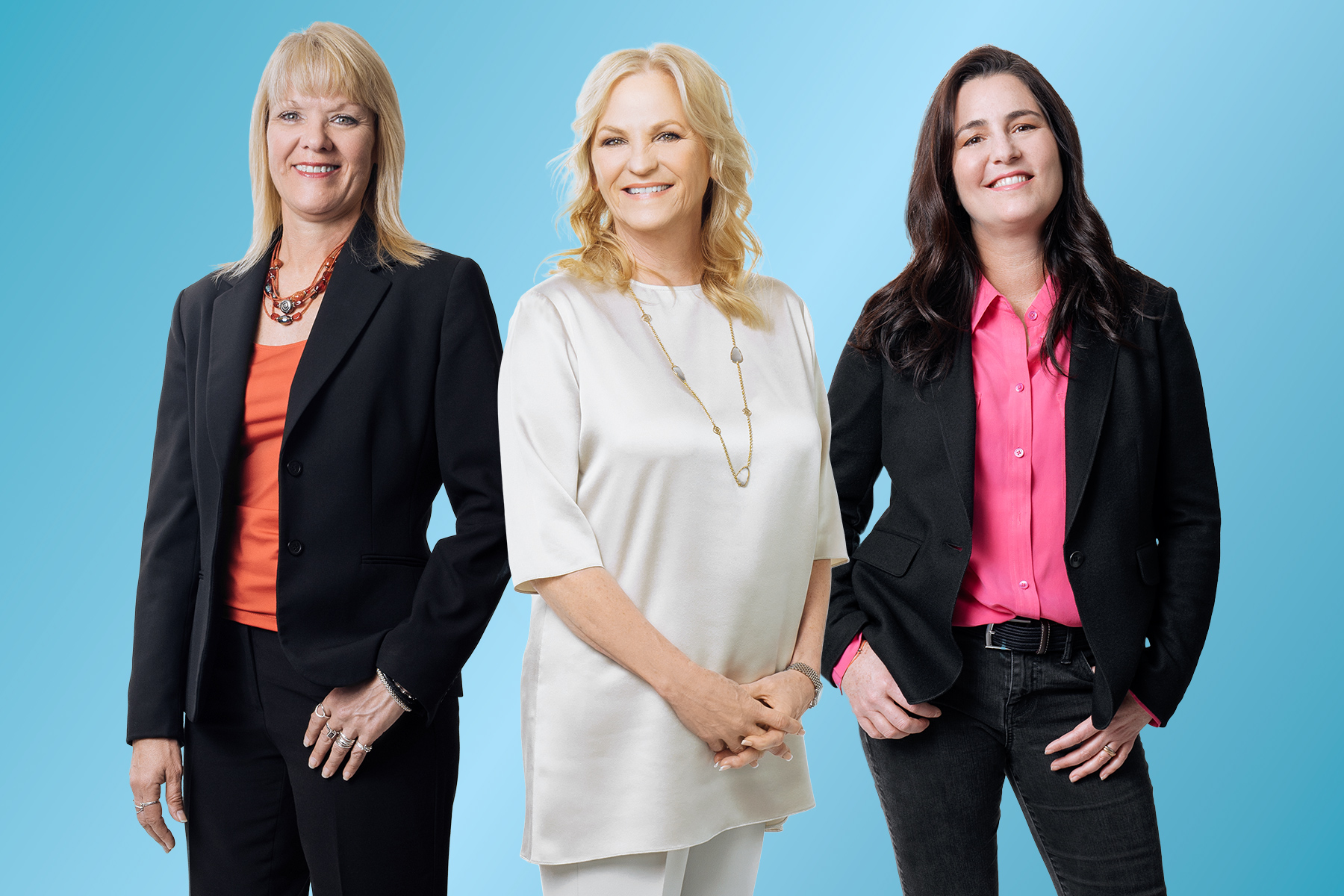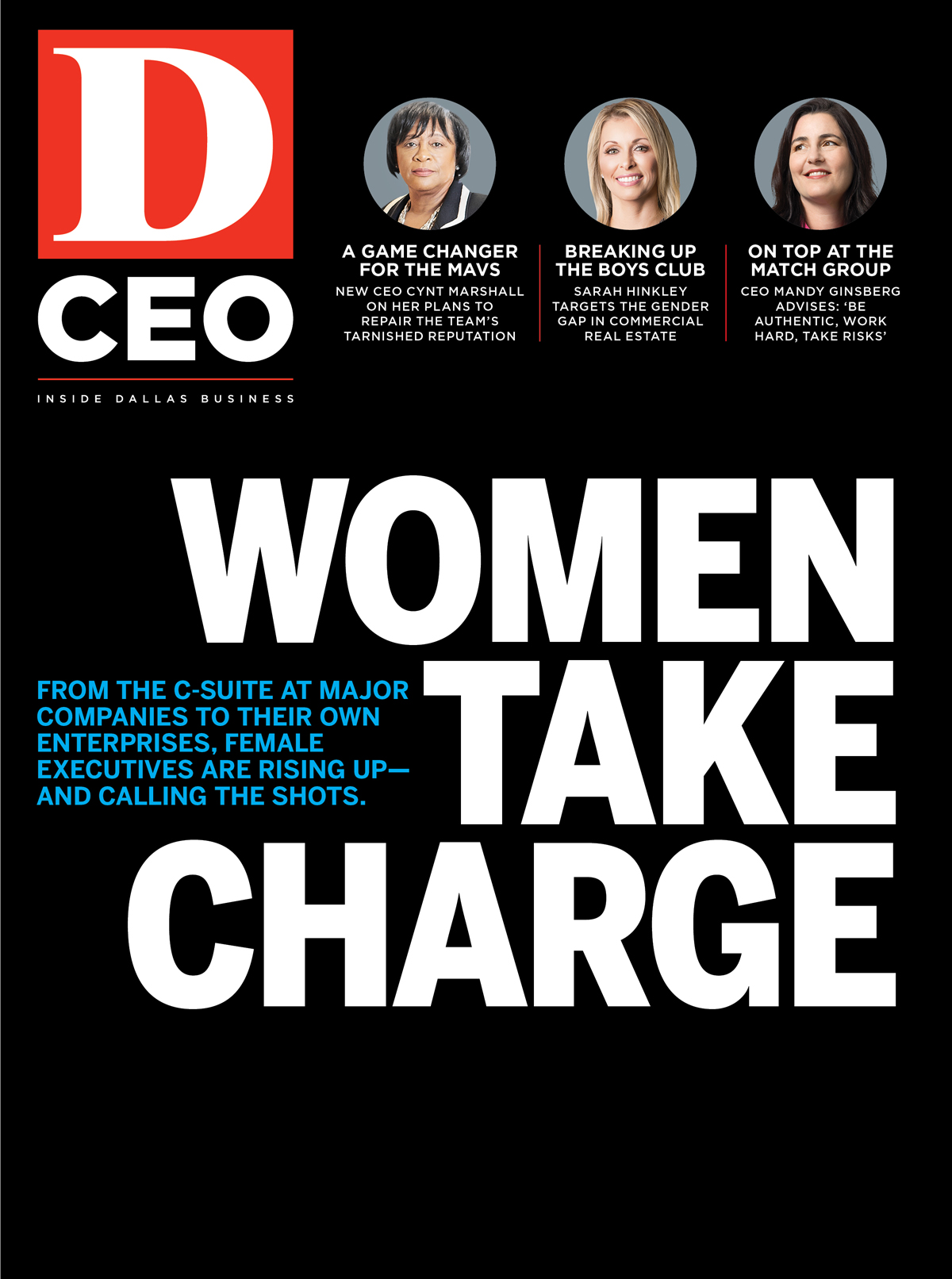Melissa Reiff felt like she was making big money when, right out of college, she landed a job that paid $14,000 annually—cute compared to her post at the top of The Container Store today. Mandy Ginsberg’s family of entrepreneurs thought she was selling herself short when she opted to work in corporate America—a decision that eventually led her to the corner office at Match Group. And Shannon Greene, chief executive of Tandy Leather Factory, thought she’d arrived when her self-dubbed “nerdy” love for accounting led her to become a chief financial officer, the highest post she thought she’d ever attain. Although these three are blazing trails as the first women CEOs of their businesses, women in general still have a long way to go when it comes to leading public companies. Out of the region’s 150 largest public companies, only a few women sit at the top. Fortunately, Reiff, Ginsberg, and Greene were willing to share their experiences and insights to help change the status quo. The leaders, all of whom have been in the CEO spot for less than three years, gave us an inside look at some of their toughest challenges, biggest learning moments, and what they wished they knew earlier in their careers.
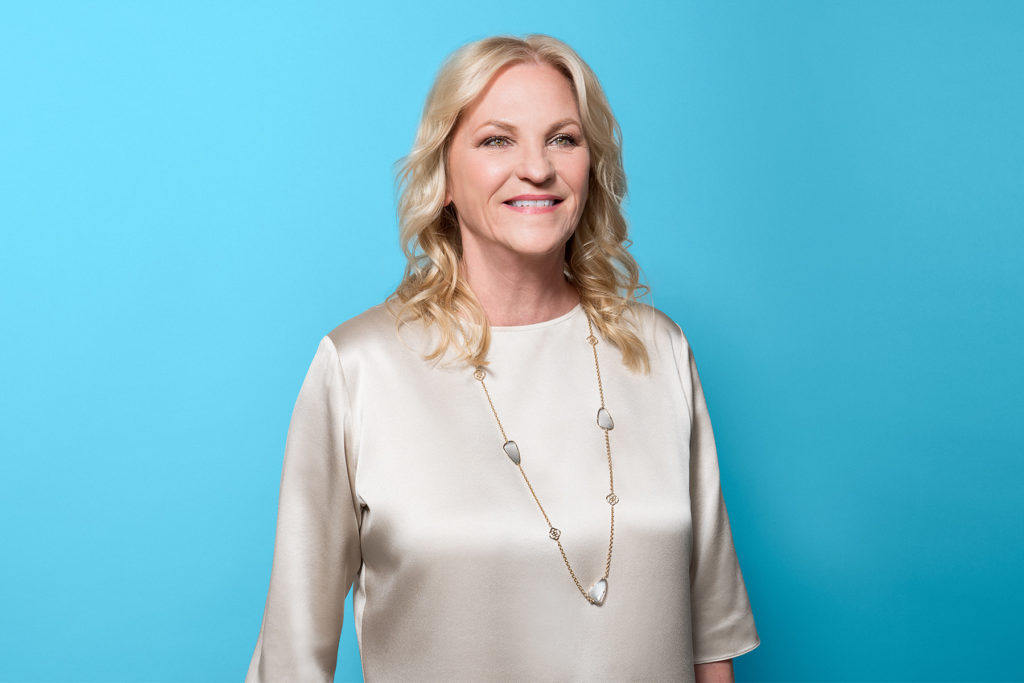
Melissa Reiff
CEO, The Container Store
When Melissa Reiff was named CEO of Coppell-based The Container Store, it came as no surprise to most. That’s because Reiff had established herself early on as someone with innovative ideas who could drive the company’s growth.
The company’s co-founder and CEO Kip Tindell took notice. After all, since joining the retailer in 1995, Reiff had developed the sales and marketing department, e-business marketing, public relations, and store launches. She also played a key role in strengthening the company’s much-lauded employee-first culture. In 2016, a couple of years after the company went public, Tindell stepped down and Reiff succeeded him.
Reiff oversees more than 5,000 employees for a company that generated nearly $820 million in fiscal 2016. She says she is grateful for the support that helped her reach the top. “It’s important to … have a strong support system, whether it’s family, friends, or your church,” she says. “That’s going to give you confidence … to make better decisions.”
Did you always want to be a CEO?
“At 22, did I think I was going to be a CEO? No. I thought I was heading back to law school. But I always knew I wanted to make sure I was maximizing my full potential. I grew up in a family where my parents said you can do whatever you want to do. So I always felt like I could do and be whatever I wanted.”
What did you wish you knew earlier in your career?
“I wish I had taken more business classes. I have learned it through experience and the hard way.”
Why are there so few women CEOs of public companies?
“It has been a man’s world in the CEO title and the boardroom. It all starts when you’re young and in the home. That constant reinforcement will help. As we have more and more successful women CEOs, I think that will help other women say, ‘Hey, I can do that too.’”
Was there ever a time you were overlooked or discriminated against for being a woman?
“I’ve never worked in an environment like that, so I feel lucky. I’m sure there’s been tinges and comments throughout, but I chose … to ignore them or come back with pretty strong comments. If you do it the right way, you can get the right response. It’s about being thoughtful and trying to make sure everybody wins. If you see bad behavior … it comes from insecurity.”
“It’s been amazing to see women sincerely helping each other versus thinking you have to lose for me to win.”
Greatest accomplishment:
“My very first job, I was paid $14,000 a year with an expense account… and I was traveling the country. That was $2,000 more than my SMU buddies.”
Has there ever been a time you felt like you failed?
“There have been times when I communicated expectations, sincerely thought we would reach them, and we did not. I guess you could call that a failure. But we didn’t deep-six that project. You pick yourself up, re-evaluate, and figure out what you’re doing right and wrong.”
How do you know it’s time for the next step in your career?
“You’ll know. We know when we’re contributing and being productive. It may take courage to take that next step, but you know when it’s time.”
How to find mentors:
“Pick someone who is secure, who can communicate clearly. Pick someone who has a lot of experience in challenging times and successful times. For women, because we have so far to go, it’s nice to have those mentors.”
How do you negotiate pay?
“I always felt that … my contributions would speak for themselves. But when it comes to negotiating, you can be firm, strong, confident but respectful. I do a lot of negotiating with vendors, and I’m just straight up. I want us both to win. It’s not even like a negotiation. It’s like, ‘Let’s craft this together.’”
Final thoughts:
“It’s been amazing to see women sincerely helping each other versus thinking you have to lose for me to win. There was some of that for sure in the past. We can all win and all help each other.”
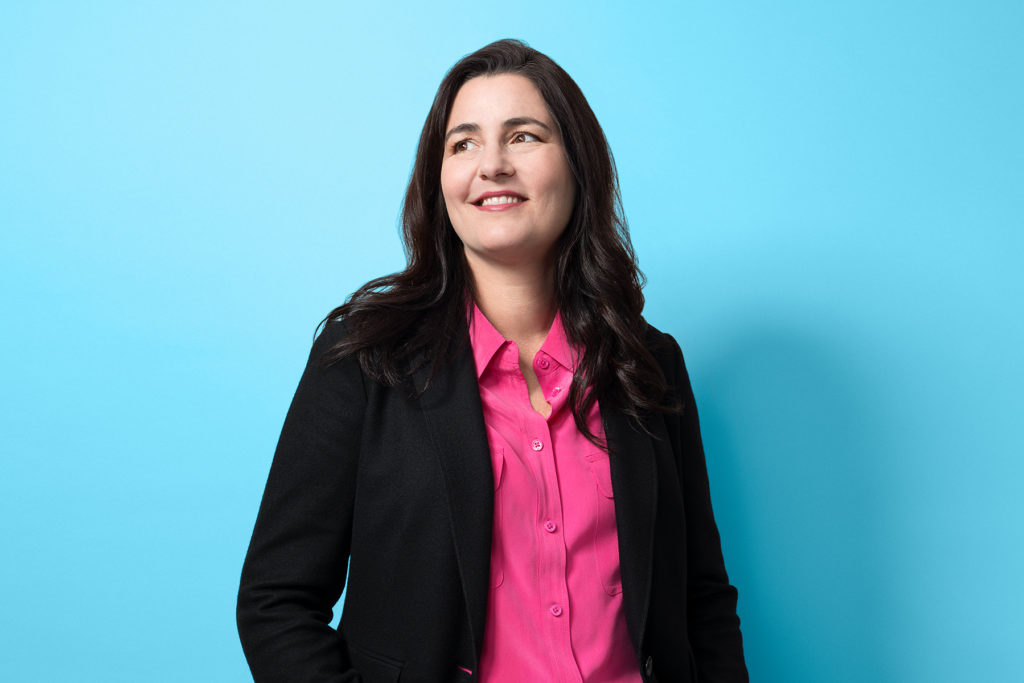
Mandy Ginsberg
CEO, Match Group
Mandy Ginsberg came from a family of entrepreneurs. Her father was a first-generation Jewish immigrant who’d followed the family legacy of building his own business. As far as her grandfather was concerned, Ginsberg was selling out when she began her career in corporate America. “My grandfather was mad at me for days,” she says. “He said you’d make much more money working for yourself than working for someone else.”
But little did her grandfather know Ginsberg’s early days in the corporate world would lead her to the top spot this year. Ginsberg served as CEO of Match Group Americas, CEO of The Princeton Review, and president of Match before taking the leading role at Match Group, which employs about 1,400 people and generated $1.3 billion in revenue in fiscal 2017. Though she never did start a company, she says the risk-taking nature passed on by her family helped propel her to the top.
Did you always want to be a CEO?
“When I started business school, the first guy I met said, ‘I want to be the CEO of a Fortune 500 company.’ All I could think was, ‘That’s a stupid goal.’ You have to do something you’re passionate about, something that gets you out of bed. I wouldn’t have said CEO was a goal, but it wasn’t out of the realm of possibility.”
Why are there so few women CEOs?
“It’s a social change. As there are more women leaders, it will change over time. There is an expectation that women won’t lead companies, and we have to change expectations.”
“I walked into a meeting to hand someone a piece of paper. An older man asked me for a cup of coffee, and I was running the business.”
Did your company change with a woman at the top?
“Culture gets influenced by the top. Having strong women in leadership roles attracts other women. And making sure we’ve got a great safe environment for all employees, especially women, is really important. The female perspective and making sure we continue to foster support does have an impact.”
Was there ever a time you were overlooked or discriminated against for being a woman?
“I walked into a meeting to hand someone a piece of paper. An older man asked me for a cup of coffee, and I was running the business. When I walked out the door, I stood there and said, ‘What am I going to do now? Do I throw the coffee on him?’ In fairness, he came running out and apologized and said he hadn’t looked up. If it had been a man, I don’t think he would’ve asked. It was very funny, but very rare.”
What did you wish you knew earlier in your career?
“In your 20s, you try so much to be something you’re not. You get all this advice to be tougher and act the part. … I wish someone had said all that doesn’t matter. You’ve got to be authentic and just work hard. Don’t be afraid of taking risks.”
Has there ever been a time you felt like you failed?
“It’s one thing to feel like you have bumps in the road, but I’ve never felt like I’ve failed. You get something out of it. It’s really not about if you fail, but what you do about it.”
How do you know it’s time for the next step in your career?
“When you stop learning and you’re stagnating and not challenged, it’s time. If you’ve been doing the same job for the last three years, you better make sure you’re constantly challenging yourself and changing.”
What are you doing to improve opportunities for other women?
“At our organization, it’s about accessibility —making sure there’s enough time to provide access to people in the organization. We’ve got such a big portion of our executive team who are women, we probably do stuff more innately.”
How do you negotiate pay?
“My mother would say, ‘If you don’t ask for it, you’re not going to get it.’ No one’s going to be a bigger advocate for yourself than you. If you don’t get it, it’s OK, because it puts into the head of your manager that this is your goal. It also opens a dialogue to say, ‘Here’s where you’re not ready,’ and allows you to say, ‘What do I need to get there?’ It puts pressure on the manager.”
Final thoughts:
“Men tend to shoot higher than their skill level… maybe in dating, too. For women, shoot a little higher. Push yourself. If you feel like you’re hitting a ceiling some place, take the risk to go to another place.”
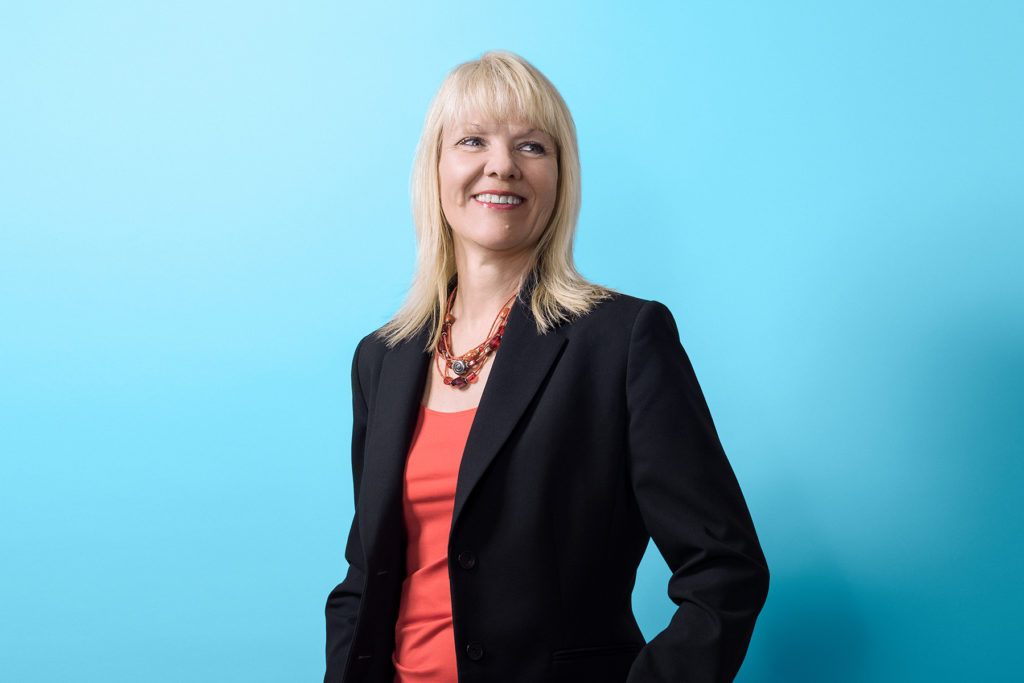
Shannon Greene
CEO, Tandy Leather Factory
Shannon Greene proudly thought she’d reached the high point in her career when she became the CFO of Fort Worth’s Tandy Leather Factory after working for the company for about three years. “I thought that was the end-all, be-all,” she says. “I told my husband I would do this for free, and he was like, ‘Please don’t tell them that.’”
But while she served as chief financial officer, she was being groomed by CEO Ron Morgan, whom she says saw her as much more than just a “bean counter.” About 16 years later, she let go of her “dream job” to take on a much bigger task—leading a company of 656 people that generated $82 million in fiscal 2017. It was a big adjustment, Greene says, but the unexpected move proved that, regardless of the situation, women can achieve much more than they may think.
Did you always want to be a CEO?
“I’m a total accounting nerd. I knew in high school that I wanted to be an accountant. I eventually got the nod to be CFO. Then I was living in really high cotton. I did that for 16 years. I didn’t think you could get further than CFO. They normally promote on the operations or sales side. But I had the good fortune of being groomed under a really good CEO.”
Why are there so few women CEOs?
“It’s the pool of candidates. In a lot of businesses and public companies, particularly the older ones, the ratio is higher for men in management ranks. There’s opportunity; it’ll just take a while.”
Did your company change with a woman at the top?
“I hope lots of things are changing. I’m the first female CEO in the history of the company. Whether we like it or not, men and women are different. They look at things differently. I have a phenomenal male president, and we make a hell of a team. It’s healthy if you work together well and can share ideas.”
“Whether we like it or not, men and women are different. They look at things differently. I have a phenomenal male president, and we make a hell of a team.”
Was there ever a time you were overlooked or discriminated against for being a woman?
“When I came back from maternity leave, I negotiated with the partners … to come in three days and work two days a week from home. I worked more hours during that time frame than I have in my life. They didn’t see me every day, so when there was a managers meeting, they’d be like, ‘What’s she doing here?’ I was the redheaded stepchild. It was just tough, but I didn’t let it stop me or make me question myself.”
Greatest Accomplishment:
“I became CFO in 2000. We borrowed money to buy Tandy, so we added debt. By ’04, ’05, we had paid off all of the debt. While I wasn’t the only person to be involved in that, I had a pretty crucial role in managing the budgets. We could accelerate growth because we didn’t have the bank hanging over us. That was a big deal.”
What did you wish you knew earlier in your career?
“I wished I’d learned to play golf earlier. I’ve played enough golf with businesspeople, men and women. Those relationships are better because not only can we have a business meeting, but there’s something about being on a golf course for four to five hours that solidifies the relationship.”
How do you know it’s time for the next step in your career?
“Follow your gut. You’ll know when it’s time to move on. You’ll see opportunities and put yourself in the best position you can. Your time will come. I don’t have to toot my horn and say, ‘Look at me.’ We can do that quietly with a lot of strength and you become the obvious choice.”
How do you negotiate pay?
“More often than not, you have to speak up. You have to do your homework. You have to know what you are doing versus your counterpart in the market. It’s a conversation, not a demand. It can be very low-key, calm, and back-and-forth, and you can come to an understanding. But if they’re not willing to do what’s fair, what are you willing to do? That’s where women get hung up.”
Final thoughts:
“Outwork the guy or girl next to you. Be quietly confident, don’t be a victim, and don’t play the woman card.”


